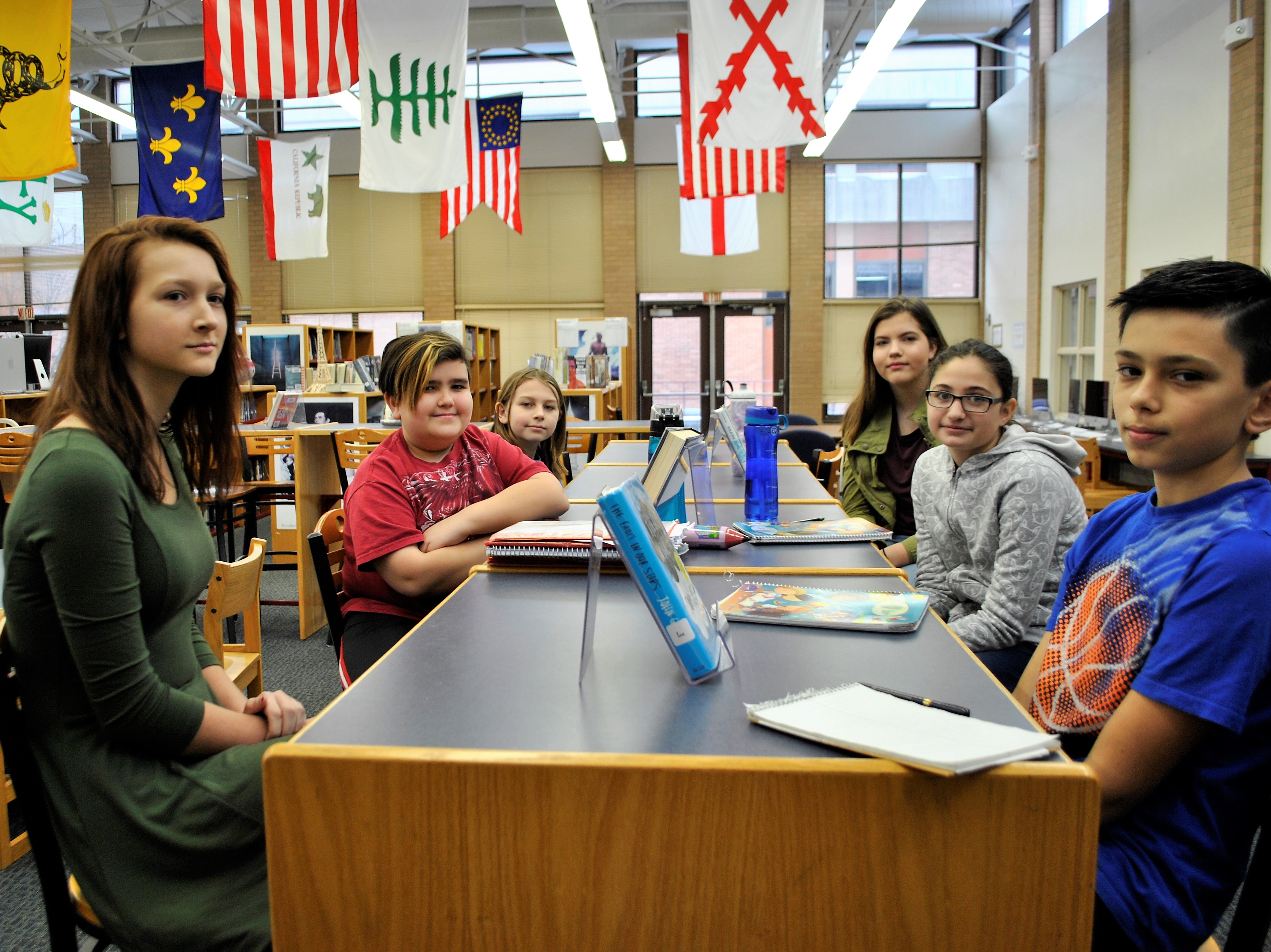
Broadview Middle School students talk about ‘Growing Up in the Digital Age’
Students in the Broadview Middle School advisory program are learning about the digital world and how it affects empathy and apathy. More specifically, they are learning that technology is part of today’s world . . . and maybe students and adults need help learning how to incorporate it as part of the solution instead of part of the problem.
On Thursday, Jan. 12, the middle school will host a pasta dinner and viewing of the documentary “Screenagers: Growing Up in the Digital Age.” A handful of Broadview students will lead a teenager panel discussion after the film to discuss the impact technology has had on their lives.
According to the documentary’s website: "Screenagers probes into the vulnerable corners of family life, including the director's own, and depicts messy struggles, over social media, video games, academics and internet addiction. Through surprising insights from authors and brain scientists solutions emerge on how we can empower kids to best navigate the digital world."
The school conducted a recent survey in which many students wrote statements such as: “we can’t live without our phones,” said sixth-grade student Julianna Haddad. She said there has to be a better way than taking away the phones, such as learning to use them “properly” and making sure that students have other activities to keep them occupied.
Seating for the event is filled to capacity with more than 250 people registered to attend. The film has been viewed by more than 2,000 schools in 20 countries.
On Tuesday, as students at Broadview went “unplugged” for 24 hours, a group of six student panelists from Broadview discussed the documentary and their ideas on the impact and handling of smartphones and social media.
All of the students agreed that technology is an important tool. Phones are good to stay in touch with friends, computers help with school, and watching videos can be educational. But they said the new technology didn’t come with rules. Instead, parents are often unable to set the boundaries and limits that they would set with other privileges for teens.
Charles Goldberg, who is in sixth grade, said that many kids get angry when a phone is taken away, which doesn’t solve any issues. “We need something to change the way we deal with it,” he said.
“We realize that we are on our phones too much,” said eighth grader Alexis Trimandilis. “A lot of parents don’t know how to handle kids being on the phone. The movie shows how to regulate that.”
The students said their primary concerns with respect to too much technology use include the fact that teens don’t know what’s too much, so boundaries need to be set and maintained, Alexis said.
Curtis Rodriguez, also a seventh grader, said that the film and classroom discussions have given him a valuable awareness that he was watching way too many videos instead of participating in other activities.
“I realized I don’t want to be in the one in college not doing homework,” Curtis said. Now he consciously focuses on doing more homework and practicing more at home for his theater club.
The students also agreed unanimously that they hope the film will educate parents on how to deal with the problems that exist so that they don’t become worse. The students said that learning how to incorporate the technology as a positive part of life is important.
“I want my mom to stop taking my phone away from me,” said Rebecca Adam, who is in seventh grade. She said she would rather have hard and fast rules to follow and have her feelings acknowledged. She said it is painful to lose the phone for a violation that which she really didn’t understand.
“People should take away that technology isn’t the issue: it’s how we abuse it,” eighth grader Derrick Tavares said. “When parents say ‘no’ in the video, the child would do it anyway to see what the parents would say. We need to find a middle ground.”
Alexis said another big problem is that people feel big and tough with a phone or through social media, as if they are invisible and can say things they normally wouldn’t say.
“A phone doesn’t mean you have the privilege to say anything to someone,” she said. “The documentary can teach people how to properly use the phone and find boundaries.”